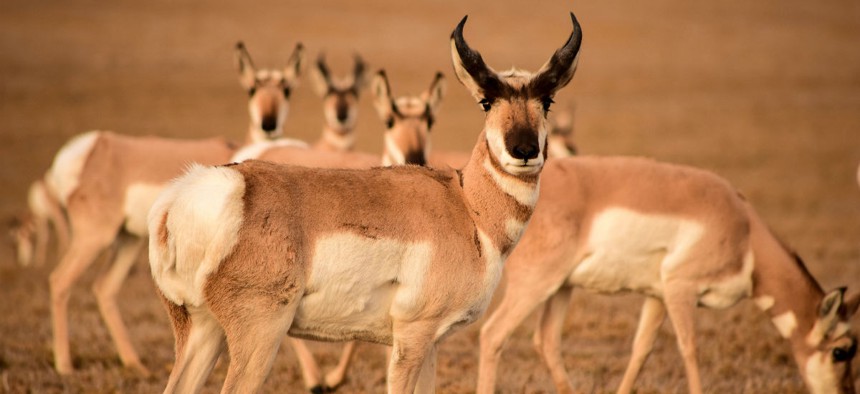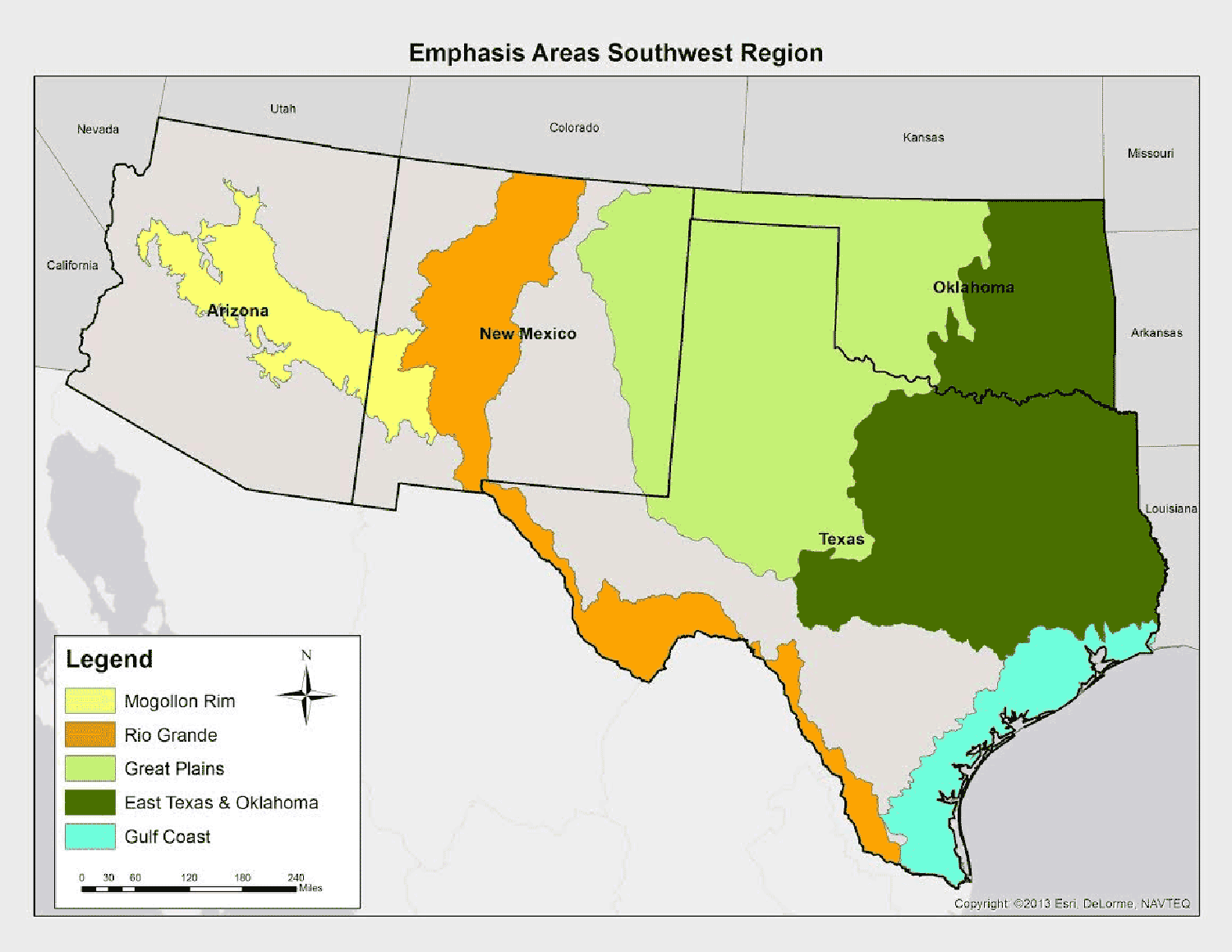
The Fish and Wildlife Service's Southwest Region is home to myriad species, including pronghorn. Flickr user Jon Nelson
In an Era of Cuts, the Path Forward for Conservation Is ‘Emphasis Areas’
How FWS is targeting limited resources where they count most.
History repeats itself and I have lived long enough to see a few reenactments with my own eyes. As regional director of the Fish and Wildlife Service’s Southwest Region I am charged with a large responsibility to steer conservation of myriad species in a multitude of ecosystems. The challenge inspires me daily.
The Southwest Region spans landscapes adorned with endemic fishes and salamanders, wintering waterfowl and nesting warblers. Pronghorn skitter over our prairies and rare trout swim in cold mountain streams that pour down sky islands that jut up from the desert floor. The people who have dedicated their lives to conservation are as diverse in talents and character and skills as are the landscapes in the region—lands that ascend from sandy beaches at sea level on the Gulf Coast up to Arctic tundra in the high headlands of the Rio Grande basin on the Colorado border.
As you can imagine, the conservation issues that persist or will arise are varied and diverse. Our staffs are as likely to engage with urban youth in large metropolitan areas as they are with native elders who descend from those who were here when time started ticking. With history as a guide, I have made an abiding commitment going forward to best serve our fish and wildlife resources and those dedicated to that purpose.
Through careful consideration by the regional leadership team representing every facet of the mission, the Southwest Region will concentrate conservation on geographies where it can most effectively achieve the greatest return on investment of limited resources. We have identified five geographies or “emphasis areas” whereby we can best achieve meaningful and measurable outcomes for fish and wildlife conservation, without leaving behind ongoing work in areas outside these new emphasis areas.
This is a better business practice—a well-reasoned and justifiable direction forward. Here’s why: During the past three years operating budgets have steadily declined. And with that we have lost a fair amount of our most precious resource—people. We are down some 150 employees over the four-state region.
We simply cannot, if you will pardon the bromide, do more with less. Species and landscapes continue to have conservation needs that demand our attention, and we must deliver. We will refine the work. We will put the skills we possess where they are most needed in emphasis areas. It’s a moral imperative—for fish and wildlife and for the American public we serve.
Public support of sound conservation is essential. As Lincoln said, “Public sentiment is everything. With public sentiment, nothing can fail. Without it, nothing can succeed.” Focusing our work on landscapes where it’s most needed will be like steel sharpening steel, and the natural outcome should be a honed edge of measurable conservation successes that will earn us the informed consent of the public.
Effective immediately, Southwest Region employees are steering resources to five geographies that encompass much, but not the entire region. Naturally, that leaves some “white space” on the map and nagging questions particularly from folks who work outside the emphasis areas. Are we abandoning National wildlife refuges in southwest Arizona, imperiled fishes of the Colorado River, or our conservation endeavors on New Mexico’s Staked Plains or the Trans-Pecos of Texas? I offer you a resounding and emphatic no! It’s all work worth doing—every bit of it. But new project resources and new endeavors going forward will be steered to emphasis areas.
We all manage a household of some size for the long horizon. The house that is the Southwest Region has been built on solid rock. We have to manage it for the future. Our people have the know-how, the grit, and just plain pluck to perform under any circumstances. We own a history of success, and with this approach I expect more to come.
Benjamin Tuggle is regional director of the Fish and Wildlife Service’s Southwest Region. He writes from Albuquerque, New Mexico.







